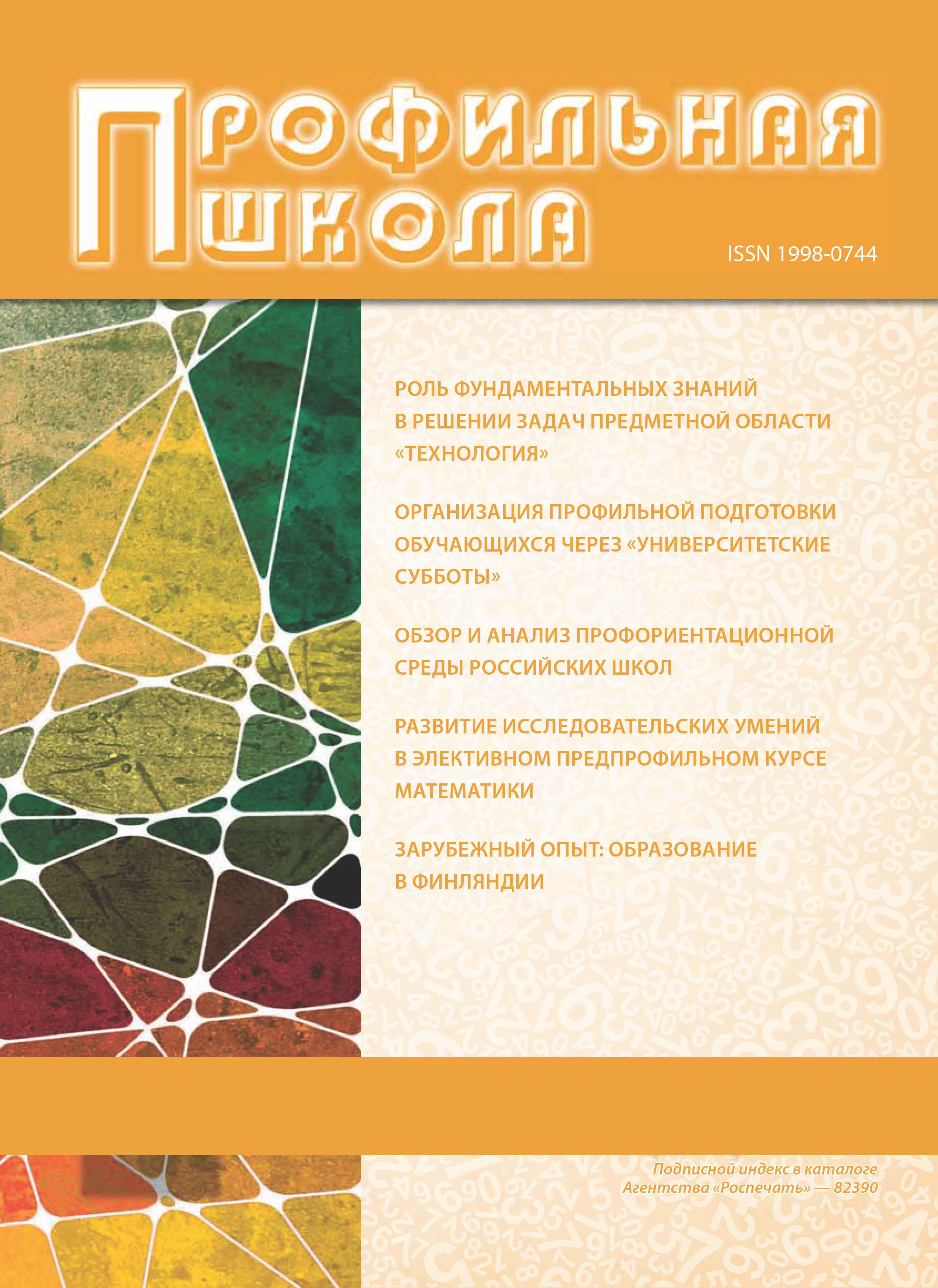Beogorod, Belgorod, Russian Federation
The author introduces the concept of “educational situation, conducive to development of a student’s research potential”, provides detailed characteristics and classifi cation of such educational situations. It is shown, that each educational situation refl exes the synthesis of the ideas of integrity, culture genesis and systemogenesis. The very consistency of educational situations, conducive to the student’s research potential development, suggests, that in the course of studying a school student is taken fi rst to make steps towards cultural genesis of a lower complexity level and then is moved in the direction of culture genesis of a higher complexity level. The material presented is useful for transition to modeling educational situations, conducive to a student’s research potential development, and to line-up such educational situations in terms of didactic module and to implement these educational situations in the real practice of teaching.
methodological approach, school student’s research potential, educational standard, educational situation, integrity, culture genesis, systemogenesis .
Внедрение нового ФГОС в практику школьного образования требует понимания учителями профильной школы сущности учебных ситуаций развития исследовательского потенциала школьников, который является новым результатом обучения. В ходе научного поиска исследовательский потенциал школьника определен нами как интегральная и системная характеристика динамичного ресурса, включающего единство развитых природных задатков (интеллекта, сензитивности к новизне ситуации, исследовательской активности, коммуникативности), ценностно-смыслового отношения к результатам исследования, обобщенных знаний о Вселенной, живой природе, обществе и человеке, умений использовать научные методы познания окружающего мира, который в разной мере актуализируется в виде диапазона и величины проявлений школьником себя в качестве исследователя в ходе целенаправленного получения им результатов познания (понимания себя, других людей, мира) и обеспечивает эффективную перестройку направления и содержания познавательной деятельности, творческую продуктивность, личностное самоопределение и творческое саморазвитие.
1. Krasnova L.A. Soderzhanie obrazovaniya: traditsii i perspektivy razvitiya [The content of education: traditions and prospects of development]. Otechestvennaya i zarubezhnaya pedagogika [Domestic and foreign pedagogy]. 2014, I. 4 (19), pp. 35 - 44 EDN: https://elibrary.ru/SNJTQT
2. Vygotskiy L.S. Problema obucheniya i umstvennogo razvitiya v shkol’nom vozraste [The problem of learning and cognitive development at school age]. Pedagogicheskaya psikhologiya [Educational Psychology]. Moscow, Pedagogika-Press Publ., 1999, p. 330
3. Ivanchenko G.V. Chelovecheskiy potentsial: razvitie lichnosti v obrazovatel’noy srede [Human potential: personal development in the educational environment]. Chelovecheskiy potentsial Rossii: intellektual’noe, sotsial’noe, kul’turnoe izmereniya [Russia’s human potential: intellectual, social, cultural dimension]. Moscow, Institut cheloveka RAN Publ., 2002, pp. 167-178
4. Bertalanffu L. von. General System Theory. Foundations, Development, Applications. N.Y.: Braziller, 1968, pp. 55-56, 83-84
5. Podd’yakov A.N. Issledovatel’skoe povedenie: strategii, poznaniya, pomoshch’, protivodeystvie, konflikt [Exploratory behavior: strategy, knowledge, support, fighting, conflict]. Moscow, PER SE Publ., 2006, p. 15
6. El’konin D.B. Izbrannye psikhologicheskie trudy [Selected psychological works]. Moscow, Pedagogika Publ., 1989, p. 58.
7. Perminova L.M. Vzaimosvyaz’ standartov pervogo i vtorogo pokoleniy [Interconnection standards first and second generations]. Narodnoe obrazovanie [Education]. 2010, I. 7, pp. 209-216. EDN: https://elibrary.ru/NDCUHT






